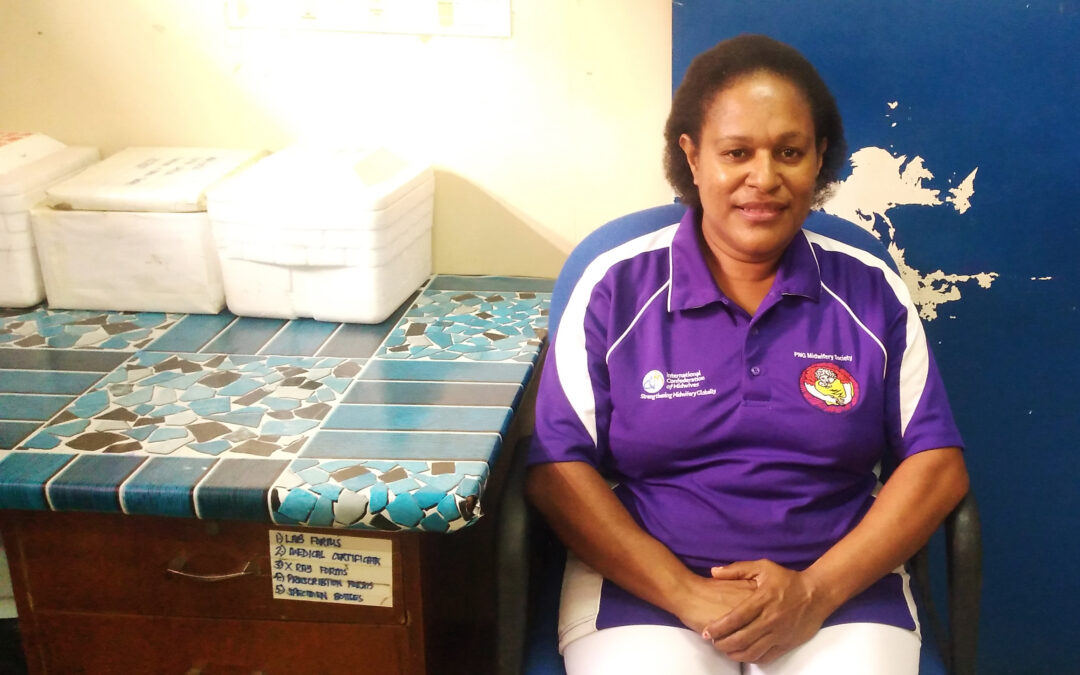Lois Namia, a midwife and Australia Awards alumna thinks the best approach to reducing the maternal mortality rate in Papua New Guinea is to train more midwives and conduct more health education on sexual reproductive health and family planning.
She says, “Midwives are qualified people, trained to give support and care to mothers through the stages of pregnancy, labour, birth and postpartum. They are the most important people.”
Lois is one of more than 900 Papua New Guineans who obtained their bachelor’s degree in midwifery through this scholarship program between 2012 and 2023.
“The Australia Awards PNG Scholarship is a blessing to me, my family and the community. I would not have achieved this qualification without the scholarship. I am very thankful,” says Lois. She encourages more nurses to study midwifery and apply for support. “It is a great opportunity. Apart from tuition fees, the scholarship also pays for the accommodation, fortnightly allowances, ticketing and travel allowances, uniforms and midwifery kits.”
The motivation to become a nurse and later a midwife comes from Lois’s experience growing up in Dengop village in Kabwum district of Morobe province. It is a remote village in the midst of rocky mountains and fast-flowing rivers, without road links, making it difficult for the villagers to access health and other basic services.
“Most mothers in the village deliver babies in their homes without supervision. Sometimes they face complications and end up dying. Getting to the hospital is a very big challenge,” she says.
Lois wanted to return back to her district and serve at the district’s health centre after obtaining her Bachelor of Midwifery from the University of Papua New Guinea in 2020, but things didn’t work to plan. She says that the health centre in her district was demolished and is currently undergoing reconstruction.
While anticipating the completion of the health centre, Lois wouldn’t let go of a calling to serve in the clinic of the PNG University of Technology in Lae. She says it is an opportunity for her to develop her skills and confidence.
Now, serving the university’s community which includes students, staff and their dependents plus the surrounding communities, she provides antenatal and postnatal care, family planning, sexual and reproductive health, and education on maternal health.
Lois loves her profession and willingly commits extra time and effort to her job. She says, “When more antenatal mothers come, I work through lunch hours without breaks.”Since the beginning of this year, Lois has also been working closely with the university’s female students’ matron to raise awareness of family planning, targeting the female students.
